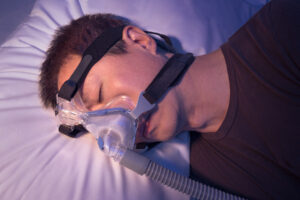Sleep medicine encompasses a wide range of sleep-related conditions, including:
Everything Sleep Provides Quality Sleep Medicine
Our sleep medicine specialists, often referred to as sleep physicians or sleep doctors, are medical doctors with specialized training in sleep medicine. Our providers evaluate patients with sleep disorders through comprehensive assessments, which may include clinical evaluations, sleep studies (polysomnography), and other diagnostic tests.

Insomnia
Difficulty falling asleep, staying asleep, or experiencing non-restorative sleep despite adequate opportunity for sleep.

Obstructive Sleep Apnea
Obstructive sleep apnea occurs when your breathing is interrupted during sleep, for longer than 10 seconds at least 5 times per hour (on average) throughout your sleep period. These periods are called hypopneas when your breathing is reduced and you’re not taking in enough oxygen.

Narcolepsy
A neurological disorder that causes excessive daytime sleepiness and sudden episodes of sleep known as “sleep attacks.” People with narcolepsy may also experience cataplexy (sudden muscle weakness), sleep paralysis, and hallucinations.

Restless Leg Syndrome (RLS)
An uncomfortable sensation in the legs, often described as tingling, crawling, or itching, that occurs when at rest and is relieved by movement. RLS can disrupt sleep and lead to daytime fatigue.

Snoring
Snoring can have causes that aren’t due to underlying disease. Examples include nasal congestion, anatomic variation of the nose and soft palate, or alcohol consumption.

Circadian Rhythm Disorders
Conditions characterized by disruptions in the body’s internal clock, leading to problems with sleep-wake timing, such as shift work sleep disorder, jet lag, and delayed sleep phase disorder.

Sleep-related Movement Disorders
Conditions involving abnormal movements or behaviors during sleep, such as periodic limb movement disorder (PLMD) and bruxism (teeth grinding).

Central Sleep Apnea
CSA is a disorder in which breathing stops and starts repeatedly during sleep. In some cases, breathing is very shallow. It occurs because the brain doesn’t send proper signals to the muscles that control breathing.
Are you ready for a better night's sleep?
If you’re looking to improve your sleep quality, undergoing a sleep test can be a valuable step. Schedule an appointment now with Everything Sleep Idaho.

